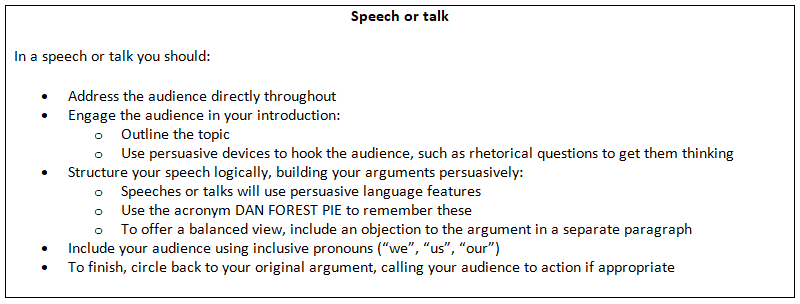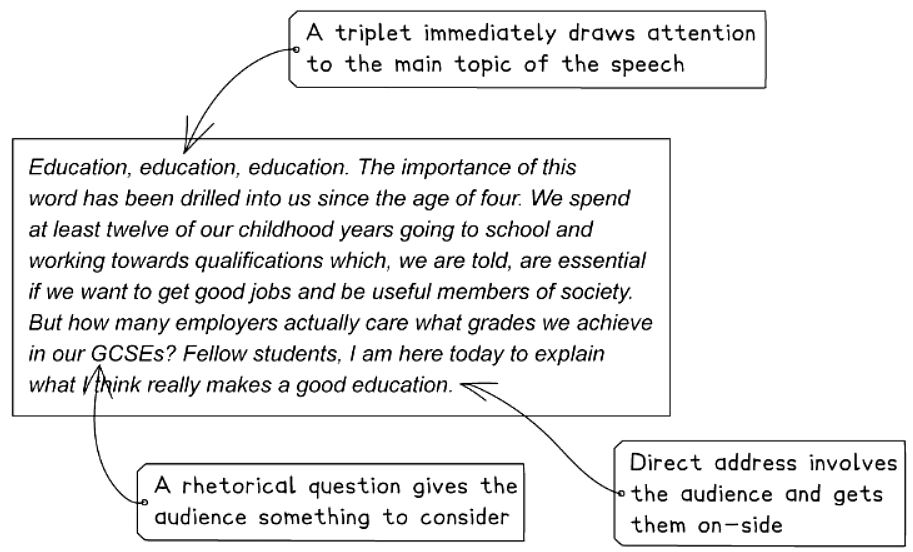Question 1 Directed Writing: How to Write a Speech | English Language for GCSE/IGCSE - Class 10 PDF Download
Introduction
One of the three formats for Question 1 is a speech. It can be addressed to your class, students, or for a formal broadcast. Your speech should reflect the ideas from the reading passages provided. Your writing will be evaluated based on how well you tailor it to the purpose, audience, and form of the task, as well as your response structure.
The guide below explains how to structure your response in the form of a speech. Divided into sections:
- Key features of a speech
- Persuasive techniques
Key Features of a Speech
The language and tone of your speech will be dictated by the task and topic at hand. However, the following are fundamental elements of a speech that could be incorporated into your response.

You might wish to structure your speech in the following way:
- Directly address the reader or audience:
- Introduce the topic and your point of view
- Use personal and inclusive pronouns to involve your audience, e.g., "you" or "we"
- Engage your audience using a rhetorical question
- Your next paragraph should develop your argument:
- You will need to deduce information, thoughts, and viewpoints from the reading material to accomplish this.
- Provide a story to give an example that supports your point:
- This helps establish a connection with your audience by interacting with them on a personal level. Ensure it is grounded in what you have read.
- Interact with the audience on a personal level by presenting a counter-argument:
- This should be derived from and expanded upon the ideas presented in the reading materials.
- Present additional research or studies:
- This could include statistics, a testimonial, a survey, or a quotation from an expert, all based on the content you have read.
- Conclude your presentation with an emotional appeal.
Persuasive writing
A speech is often more persuasive than other forms of writing. You are trying to persuade your audience that your point of view is valid, and sometimes encourage them to join you.
Here are some tips for how to make your speech persuasive:
- Write in the first person (write from your own perspective)
- Use personal and inclusive pronouns:
- Using words such as "we" and "us" builds rapport between you and your audience and makes them feel involved
- Present your opinions as facts; as a truth that should not be challenged
- Be passionate but not aggressive:
- Utilize emotional language and strong directives to prompt your audience to take action.
- Decide on your stance and adhere to it consistently.
- Avoid coming across as overly promotional in your messaging.
Example Introduction to a Speech about GCSEs:

|
16 videos|45 docs
|
FAQs on Question 1 Directed Writing: How to Write a Speech - English Language for GCSE/IGCSE - Class 10
| 1. How can I make my speech more engaging and persuasive? |  |
| 2. How can I structure my speech effectively? |  |
| 3. What are some key elements of a successful speech? |  |
| 4. How can I overcome stage fright when delivering a speech? |  |
| 5. How can I ensure that my speech is tailored to my audience? |  |





















